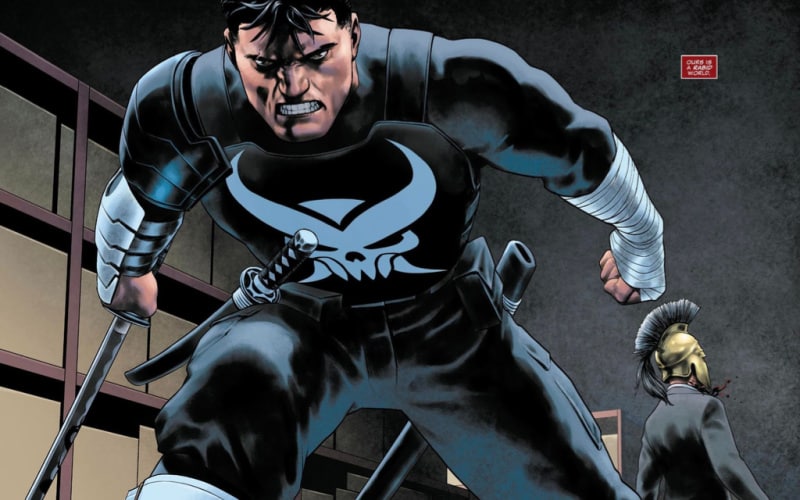EXCLUSIVE: Candice Carty-Williams was catapulted to fame by her hit novel Queenie, which made her the first Black author to win a top prize at the British Book Awards, but she tells Deadline adapting for TV has proved a seriously tough task.
The Channel 4–Hulu adaptation will air this year and Carty-Williams said she has been grappling to hold on to the true self of the character she created nearly a decade ago in the face of editorial wrangling.
She said she “can’t even explain how much harder it was” to adapt Queenie compared with writing her original BBC/Netflix series Champion, which drops on Netflix today.
“People buy something because they have an idea of what they want,” said the London-born auteur. “There was an idea of what they wanted to do with Queenie and for me it was like, ‘What?’. Of course it’s really important to adapt to the times and what’s going on but I’m never going to change my characters to adapt to what a group of people are telling me someone I created years ago should do. I will always fight for my characters as though they are real people.”
Queenie follows the life and loves of Queenie Jenkins, a vibrant, troubled 25-year-old British-Jamaican woman who is not having a very good year. The novel was published in 2019 to acclaim and the adaptation from Steve November’s Further South Productions in association with Lionsgate Television was commissioned by Channel 4 two years later, before being boarded by Hulu entertainment brand Onyx Collective last year.
‘Champion’
Champion
BBC/New Pictures Ltd/Ben Gregory-Ring
Working on musical drama Champion concurrent with Queenie acted as a “total balm” to the stress, added Carty-Williams.
“It kind of saved me in a way I think because I got to take myself into a world that I love so much, work with some amazing producers and see a different side of things,” she added. “I am wedded to the Champion characters but Queenie was my first big project and it’s how I made myself and made my name. I will always protect her.”
Champion drops on Netflix today and Carty-Williams said she hopes Americans’ love for British music and culture will help drive its success on the streamer.
Netflix jumped aboard Champion as co-producer around a year ago and it launched on the BBC last summer, garnering strong critic reviews and decent ratings.
The show is unique in its integration of British music, especially grime, and a number of artists and music producers worked on it to forge almost 40 songs across eight episodes, which Carty-Williams said could be the key to it taking off on Netflix. British artists such as Ray BLK, Shola Ama and Ghetts were involved and a record produced by Def Jam came out soon after the BBC launch.
“It’s nice for Americans to see what is going on over here,” said Carty-Williams. “From what I’ve seen and understand Americans have a real love for our music and culture and it’s also Jamaican culture [in the show], so American-Jamaicans can enjoy it. There are so many crossovers with American and British artists and I feel like they always show a lot of love to us.”
When creating the series, Carty-Williams was conscious she “didn’t want a musical but wanted the music to be situational.” “Attention spans are dwindling so you have to be realistic and know when things go wrong,” she added.
The author rejected the notion that Champion, which is set in her home of South London, is too ‘local’ a story to perform well globally, pointing out that the Queenie novel sold well in the States and was in fact launched there before the UK. Another London-set series, Top Boy, has proved one of Netflix’s biggest UK hits in recent years after it was picked up from Channel 4.
Starring up-and-comers such as Top Boy’s Malcolm Kamulete and singer Déja J Bowens, Champion focuses on the musical rivalry between two up-and-coming musicians, siblings Bosco and Vita, and the ramifications and fallout of which could drive their family apart in their quest for musical stardom.
Netflix was sold almost instantly, Carty-Williams said, as she recalled meeting execs from the streamer for the first time. “They asked what the music was going to be like and I just said, ‘Trust me’ and they said, ‘OK sure, we back you’.”
She heaped praise on Netflix’s involvement, saying that execs were close to the editorial – including weekly meetings – but “there was a difference between [this involvement] and a network telling you what to do.”
After toiling away on her first TV show and following many sleepless nights, Carty-Williams said she had been pleasantly surprised by the UK reaction to Champion. “It’s gone far and wide – I see clips of it around what I call the ‘WhatsApp Auntie network’,” she added. “I was at a funeral and a man came up to me and said, ‘Are you the empress who wrote Champion’ and that was really special to me because I know it has reached so many people. I try and come from a place of authenticity and truth, and I hope people can connect with that.”
The experience took a lot out of her. Not only was it her first writing gig on a TV series but she also show-ran, exec produced and was heavily involved with the music, spending nearly half a year on set in Birmingham and Jamaica.
“It’s hard for me to write and put so much into these characters and then be like, ‘OK there you go’,” said Carty-Williams. “I need to be in the mix.”
She posited the pros and cons of writing books versus TV, finding that television execs “go over things 500 times,” while with novels she would simply produce two or three drafts.
“But as much as TV is a challenge and a learning scape it drives me and excites me because I love how collaborative it is,” she added. “And books are very solitary. I’m writing another novel next and I’m dreading it.”
















